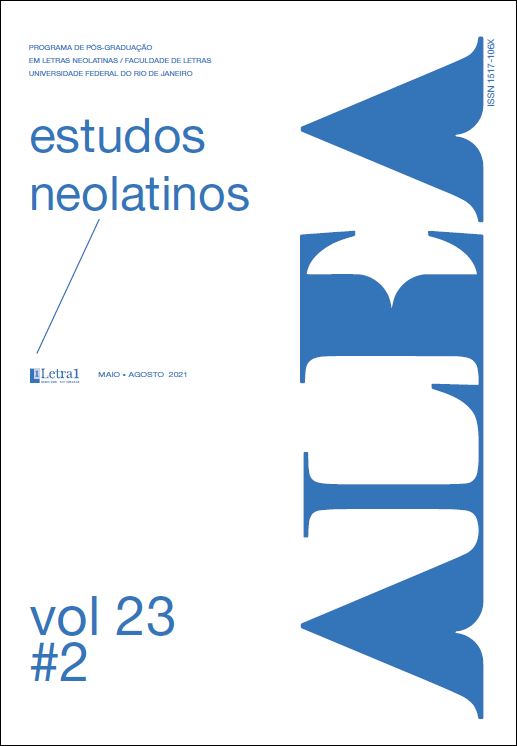Por uma translíngua animal: o projeto antilogocêntrico de Gamaliel Churata
DOI:
https://doi.org/10.1590/1517-106X/2021232127143Abstract
Este artigo propõe pensar as práticas translíngues que se dão na obra de Gamaliel Churata como uma forma de elaboração de uma concepção de língua anticolonial e antiplatônica que, a partir dos saberes andinos, questiona os fundamentos logocêntricos da linguística e da filosofia ocidentais. Em El pez de oro e Resurrección de los muertos, o autor dialoga diretamente com Platão para propor uma língua não fundada em um ideal abstrato, que a escrita literária codificaria, mas nas práticas orais, marcadas nos Andes pelas fronteiras fluidas entre as línguas em contato. Esse modelo leva-o a discutir não só as relações de poder envolvidas na língua, mas também seus fundamentos filosóficos. Churata questiona o homem-letra por trás da cidade letrada e, impugnando uma última grande divisão da língua, aquela que separa os humanos dos não humanos, propõe uma humanidade-animal cujas práticas culturais são entendidas como energia material e vinculadas à natureza.
Downloads
Published
Issue
Section
License
THE AUTHOR/S confirm/s his, her or their participation in all stages of work preparation: 1) Conception, project, bibliographical research, analysis and interpretation of data; 2) Writing and reviewing the manuscript; 3) Approval of the final version of the manuscript for publication; 4) Responsibility for all aspects of the work and guarantee for the accuracy and integrity of any part of the work. The submission of works implies the immediate cession, without onus, by all authors, of publication rights to the journal Alea, licensed under CC BY (https://creativecommons.org/licenses/by/4.0/). The authors are fully responsible for the content of the article and continue to hold all copyrights for subsequent publications of it, and should, if possible, include the reference to the first publication in the journal. Alea does not commit to returning received contributions. Authors of articles, reviews or translations will receive a copy of the journal.

